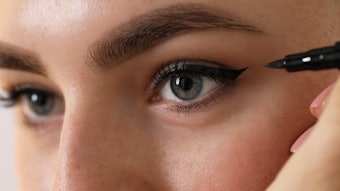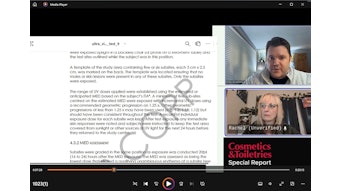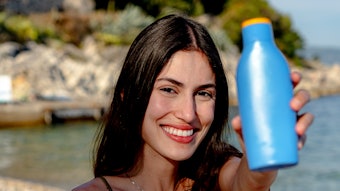The Personal Care Products Council (PCPC) has responded to a study by the Silent Spring Institute that claims to have found harmful chemicals in a variety of personal care and household products. The PCPC notes that the study, "Endocrine Disruptors and Asthma-Associated Chemicals in Consumer Products," which was published in Environmental Health Perspectives, lacks scientific understanding. According to the Linda Loretz, PhD, senior scientist and director of safety and regulatory toxicology for the PCPC, "The results of this study are not new or surprising and should not alarm consumers. The mere presence of those chemicals identified does not mean they are harmful."
The study analytically quantified endocrine disruptors and asthma-related chemicals in 213 cosmetics, personal care products, cleaners, sunscreens and vinyl products. The organization noted the presence of compounds such as parabens, phthalates, bisphenol A, triclosan, ethanolamines, alkylphenols, fragrances, glycol ethers, cyclosiloxanes and UV filters, and evaluated whether labels can be used to select products without these chemicals. It detected 55 compounds in the products studied. Vinyl products contained >10% DEHP. The highest concentrations and numbers of detects were in the fragranced products such as perfume, air fresheners and dryer sheets, and in sunscreens. Some products that did not contain the well-known EDC phthalates contained other less-studied phthalates (also EDCs). The organization suggested that many detected chemicals were not listed on labels.
In its response, the PCPC notes that the report contains several key flaws with the methodology, including: no criteria for the list of chemicals identified as "endocrine disruptors" or "asthma-associated" is provided in the study; products were inappropriately tested together in batches, so no conclusions can be drawn about the results for any specific product; and the analysis also provides no consideration for the potency, dose or exposure levels of the ingredients.
The PCPC also noted that chemicals with endocrine activity are abundant in nature, and present in food such as soy, cabbage, cereals, pomegranates and coffee. It furthers that the study's findings that allege "endocrine disruption" are not based on relevant science and ignore the fact that these ingredients are used at levels found to be safe by scientific and regulatory bodies around the world.
The PCPC notes that the study's authors do not define what is meant by "chemicals linked to asthma" and "asthma-associated chemicals." Instead, the study includes compounds that are reported to have effects in occupational settings, which have no relevance to the significantly lower exposures in cosmetics and personal care products. The PCPC adds that the study highlights the lack of endocrine activity in diethylphthalate (DEP), yet lists it among endocrine disruptors. The study also cites sunscreens as endocrine disruptors based on the results of screening assays with no proven relevance for humans.
With regard to fragrances, the PCPC adds that multiple fragrance materials in a fragranced product is considered a "mixture," and that this is overlooked in the study. The paper reports as a significant finding that certain fragrance compounds are often detected together in the same product. Based upon how fragrances are developed, these are expected findings and raise no concern.
The PCPC supported the safety of such personal care ingredients as parabens, which function as preservatives to prevent the growth of pathogenic fungi and bacteria. In addition, it noted that UV filters and antimicrobials are critical to maintaining public health.










